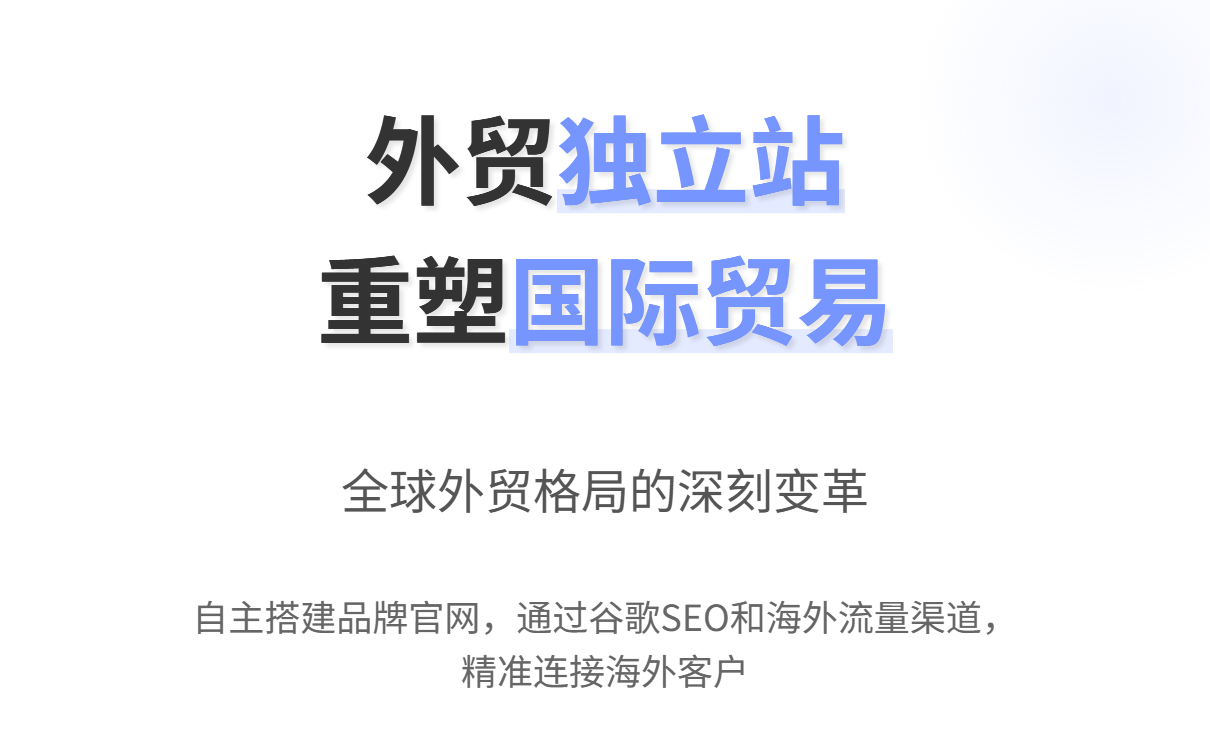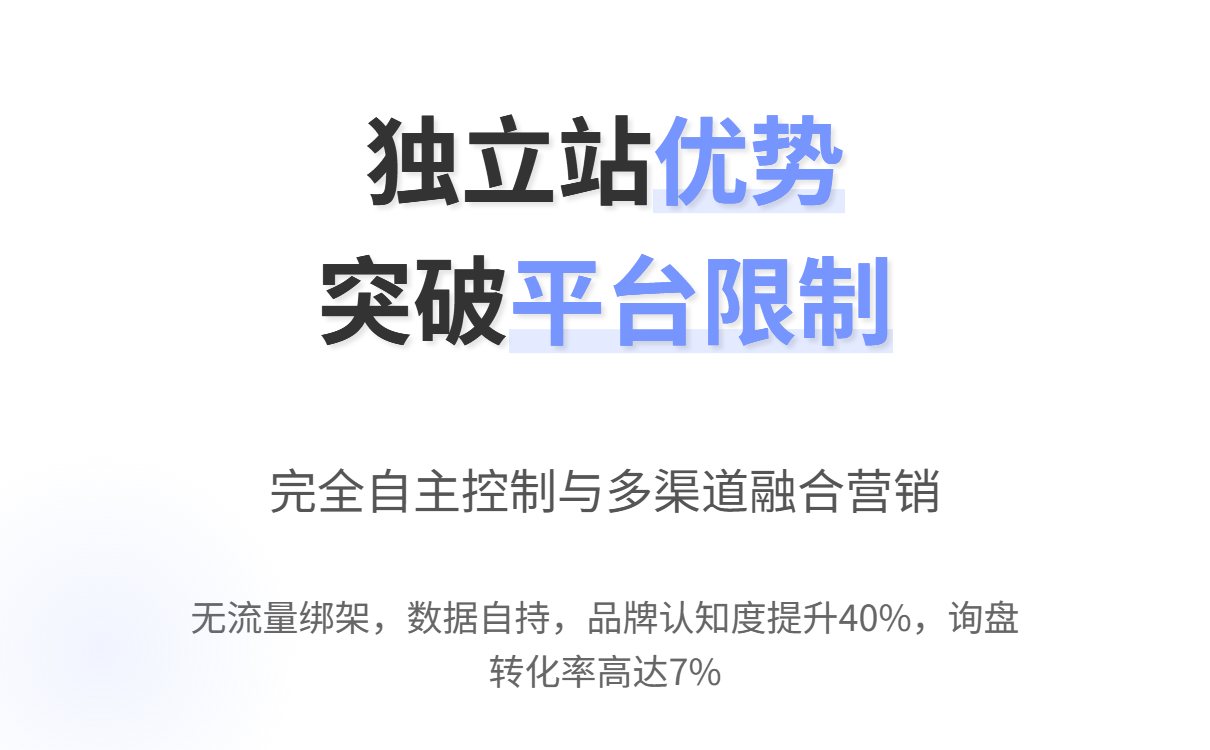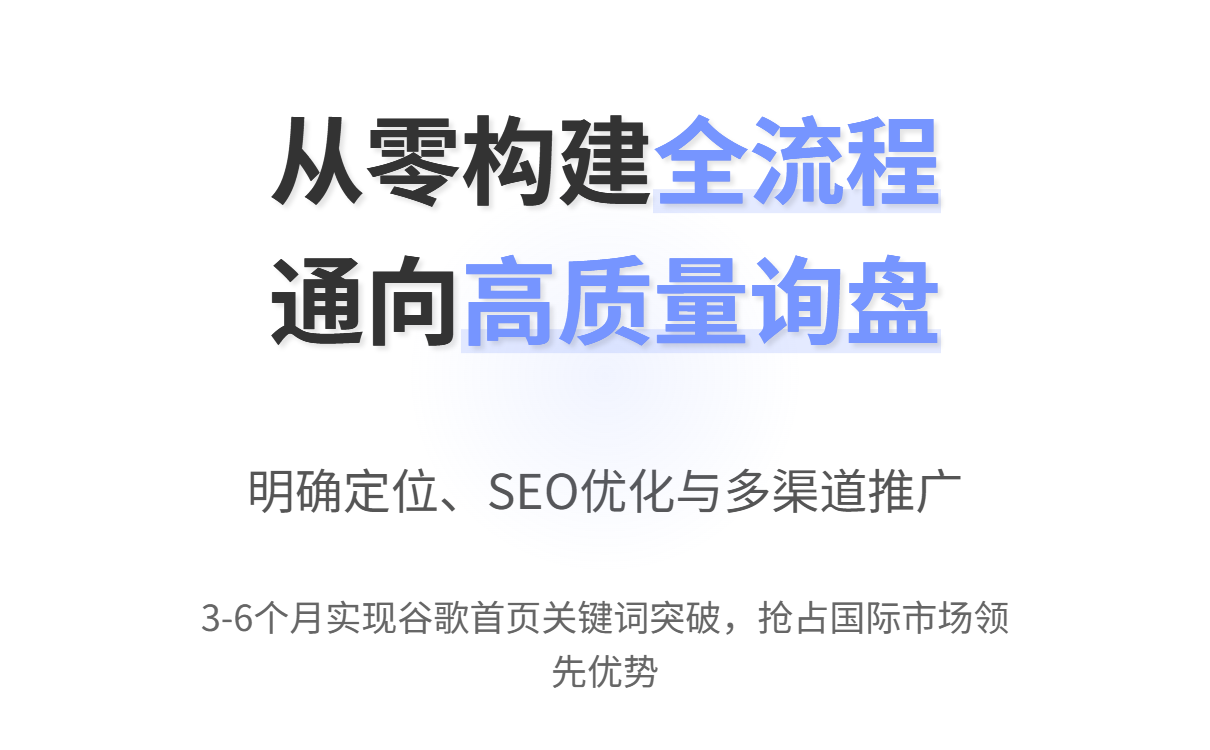 400-076-6558智领未来,外贸超级营销员
400-076-6558智领未来,外贸超级营销员
 400-076-6558智领未来,外贸超级营销员
400-076-6558智领未来,外贸超级营销员

In recent years, the global foreign trade landscape has undergone profound changes. The impact of the pandemic and the traffic constraints of traditional B2B platforms have given rise to a new trend: the rise of independent foreign trade websites. As the name suggests, independent foreign trade websites refer to official brand websites built and operated independently by companies. Through Google SEO and multiple overseas traffic channels, they precisely connect with overseas customers and enable free inquiry. 
Compared with third-party platforms such as Alibaba, independent sites have outstanding advantages:

| plan | Applicable Scenarios | Advantages | Typical representatives |
|---|---|---|---|
| Self-built (open source system) | B2B companies, focusing on SEO and full self-control | Zero platform dependency, deep customization, flexible optimization | WordPress + WooCommerce |
| SaaS platform | B2C retail, requiring fast launch and easy maintenance | The platform is stable, requires no maintenance, and is easy to connect to social media advertising. | Shopify |
| AB customer intelligent website building | One-stop management for companies with tight timelines or no technical team | Professional delivery, customized solutions, and one-stop service experience | Penguin Group, Yunnan Yingfu |

The market is flooded with a large number of "website building teams" whose prices are too low, which ultimately leads to lack of technology, inadequate SEO placement, and subsequent maintenance becomes even more difficult. The following are key reminders:
While SEO is a long-term strategy, combining it with data-driven Google Ads can also help attract targeted traffic in the short term. B2B foreign trade companies should focus on industry keywords, while B2C companies should incorporate social media content and influencer marketing. It's recommended to publish at least one to two in-depth industry articles per week, accumulating at least 20 articles within three months, to enhance authority and keyword coverage.
.png?x-oss-process=image/resize,h_100,m_lfit/format,webp)
.png?x-oss-process=image/resize,h_100,m_lfit/format,webp)

.png?x-oss-process=image/resize,h_100,m_lfit/format,webp)
.png?x-oss-process=image/resize,h_100,m_lfit/format,webp)
.png?x-oss-process=image/resize,h_100,m_lfit/format,webp)
.png?x-oss-process=image/resize,h_100,m_lfit/format,webp)
